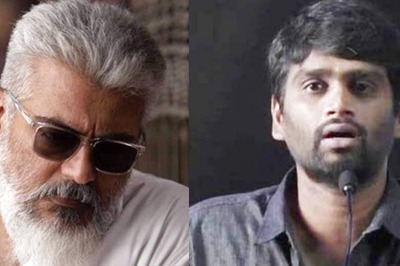
views
The title of former chief minister Tarun Gogoi’s memoir, ‘Turnaround: Leading Assam from the Front’, perhaps best describes his contribution to making the northeastern state a Congress citadel for 15 years – from 2001 to 2016.
Gogoi took charge of the Congress party when Assam was going through a difficult phase. Insurgency and ‘secret killings’ – the extrajudicial killings of family members of certain United Liberation Front of Asom (ULFA) leaders allegedly by state agencies — turned the state into one of the most dangerous places on the earth.
In the 2001 elections, the Congress won 71 out of 126 assembly seats defeating Prafulla Kumar Mahanta-led Asom Gana Parishad (AGP). The AGP that was born out of the six-year anti-foreigner agitation that had ruled Assam for second term from 1996 to 2001.
Gogoi wrote in his memoir, “And when the leaders of the agitation formed a political party after signing the Assam Accord [in 1985], there was much joy and hope. It thus grieved me to see the spirit of the simple and romantic Assamese silently shattering.”
“The first phase of AGP rule – from 1985 to 1990 – had been distressing enough. The economy was in doldrums, and insurgency and counter-insurgency were the order of the day. But the descent during the second phase…was worse. Assam witnessed it ugliest era, marked by fear among the innocent and violence of the corrupt.”
With the failing economy and the lack of development, the state was staring at an uncertain future. The situation came to such a pass that government employees had gone without salary for months.
All this changed under Gogoi’s leadership. After he took over as CM in 2001, Gogoi opened channels for talks with insurgent outfits, thereby reining in the culture of killings and counter-killings. He brought the state’s economy on track and undertook massive infrastructure development.
For instance, the rate of growth in Gross State Domestic Product (at 1999-2000 constant price) increased from 1.75 per cent in the 9th plan period (1997-98 to 2001-02) to 5.33 per cent in the 10th plan and to 6.78 per cent in the 11th (2007-08 to 2011-12).
A 2014 white paper released by the Assam Congress on contributions of the BJP-led National Democratic Front (NDA) and the Congress-led United Progressive Alliance to Assam, read, “The HDI [human development index] report ranked Assam [first] in [the] percentage change in income index as compared to 1999-2000.”
The grand old party also claimed it had brought in close to Rs 20,000 crore of investment to the “insurgency-ravaged state” during the period from 2001 to 2016 when Gogoi was the chief minister.
“The BJP-led government often claims that Rs 7,000 crore of investment followed in the state ever since they assumed power in Assam, but that is not true. The Rs 7,000 crore that the government talks of are actually from industries like Dabur, Sun Pharma, Emami, Hindustan Unilever, Star Cement, Topcem Cements etc, which had started production from 2007…,” senior Congress leader Pradyut Bordoloi, who served as industry minister in the Tarun Gogoi-led cabinet, had said in 2018.
Early Life and Political Career
Gogoi was born on October 11, 1934 into an Ahom family at Rangajan Tea Estate in Jorhat district. After graduating from Jorhat’s JB College, he earned his law degree from Gauhati University. He then took the plunge into politics, but unlike many, he set his eyes on the national arena. He won his first Lok Sabha election in 1971 from the Jorhat constituency. He had been elected to the Lower House of Parliament six times – initially from Jorhat and later from the Kaliabor seat, which is now held by his son Gaurav Gogoi.
He also served as Union Minister for Food (independent charge) from 1991 to 1993 and MoS Food Processing Industry (independent charge) from 1993 to 1995.
Gogoi was elected joint secretary of the All India Congress Committee (AICC) in 1976 under Prime Minister Indira Gandhi. A true Congress loyalist as he was, Gogoi called Indira Gandhi “an inspiring leader, totally devoted to the people and the country”.
Recalling the post-Emergency days, Gogoi wrote in his memoir, “Her comeback was inevitable. As for me, I would not have left the Congress even if Indiraji had not won the 1980 election. Loyalty precedes power politics; I am a Congressman and will remain one till my last breath.”
Read all the Latest News, Breaking News and Coronavirus News here




















Comments
0 comment